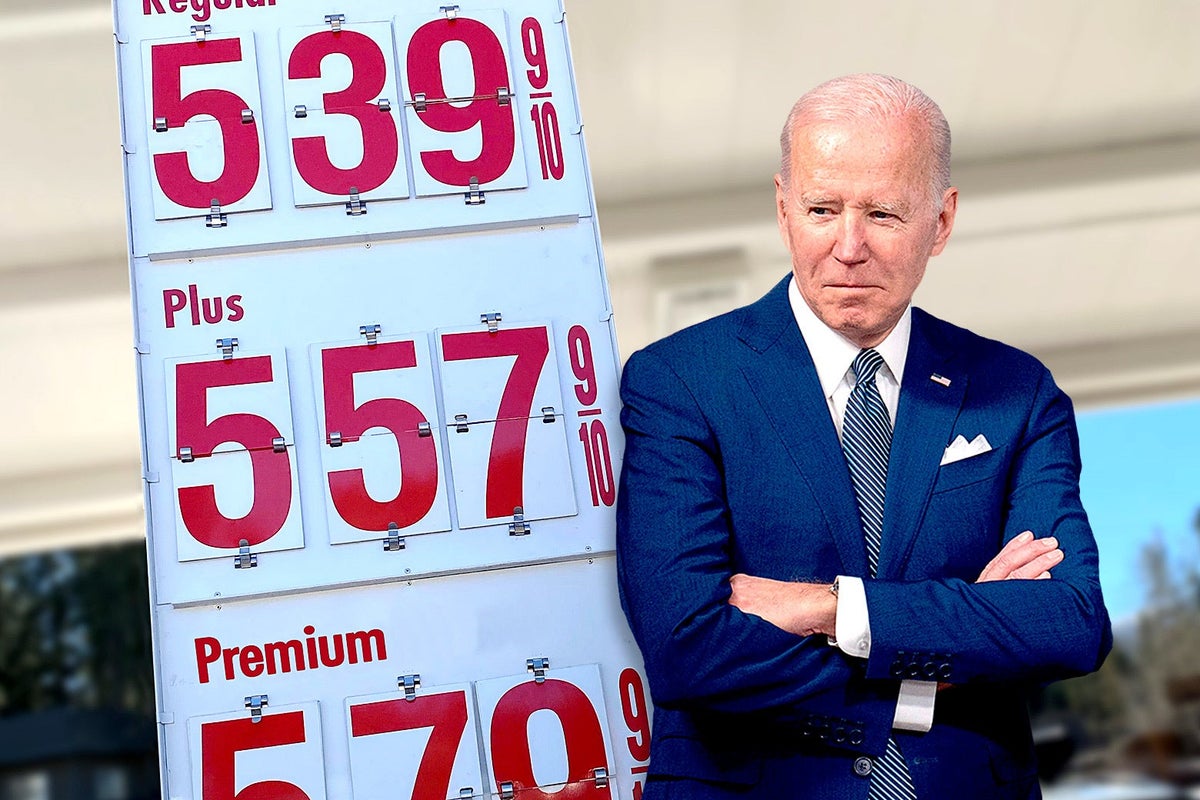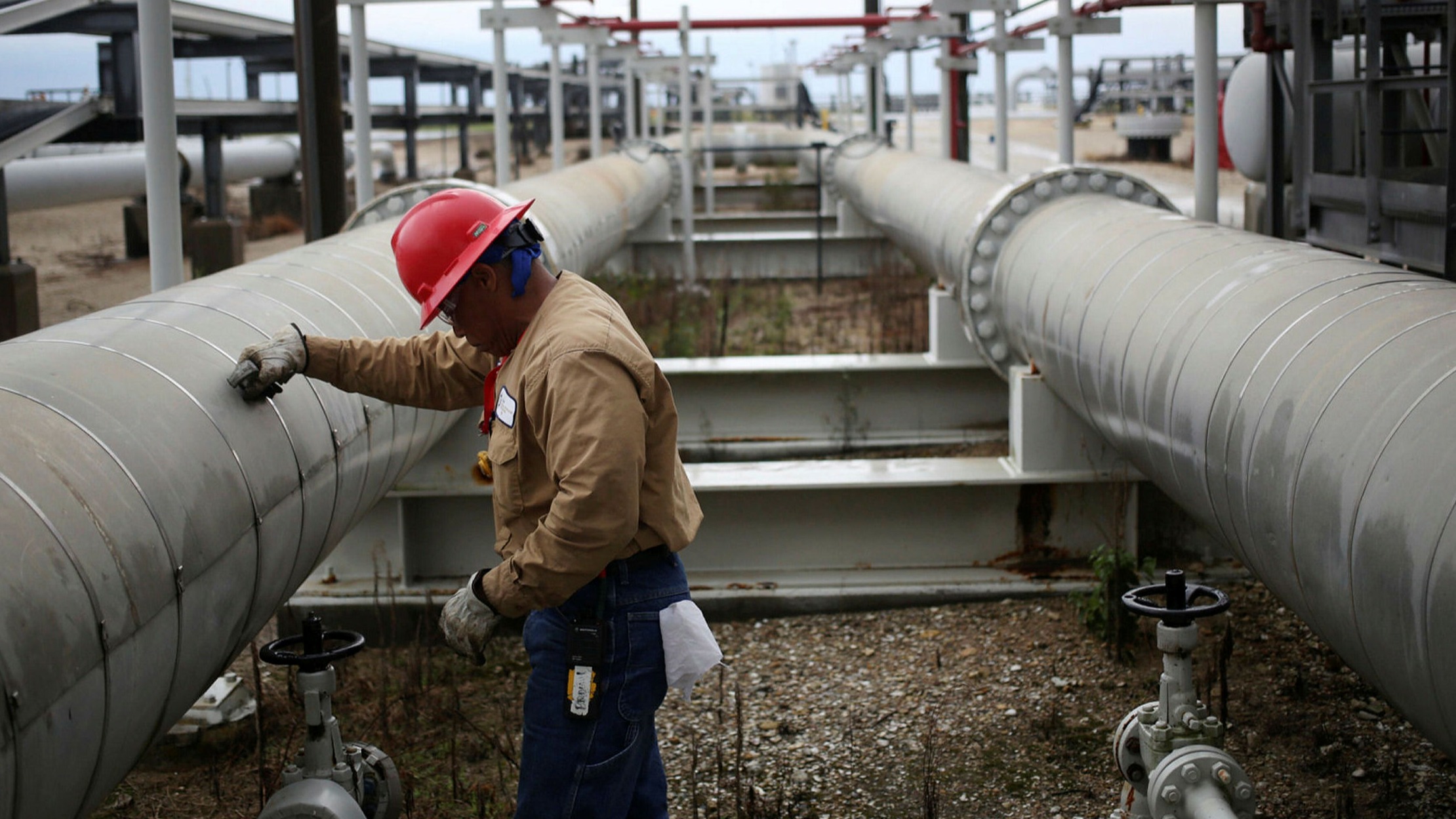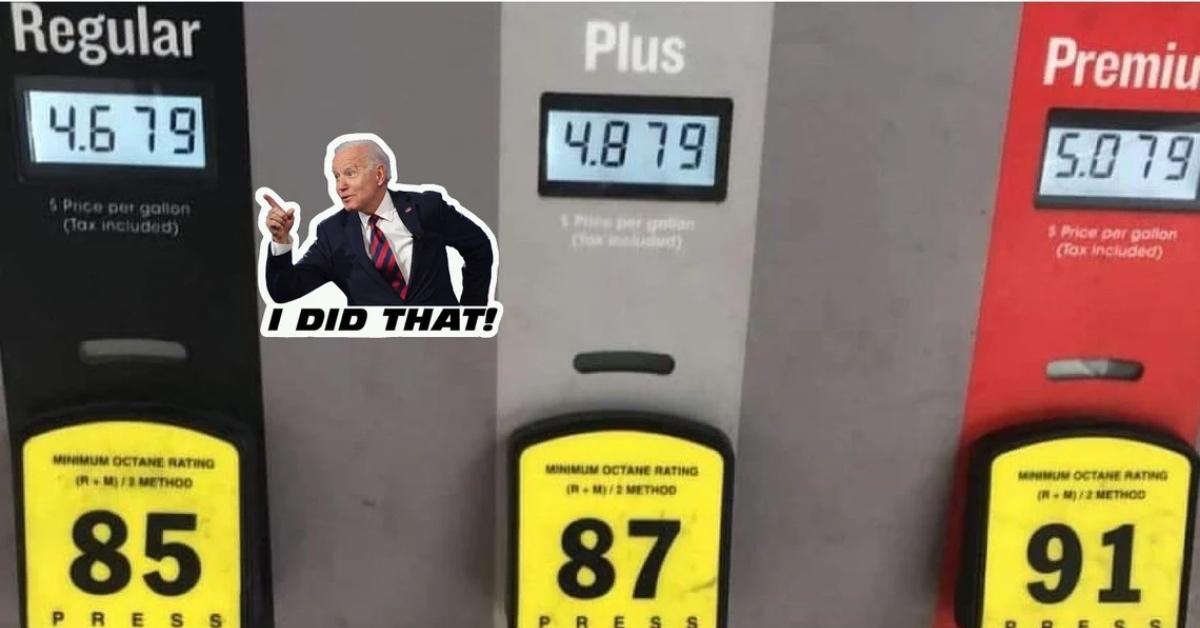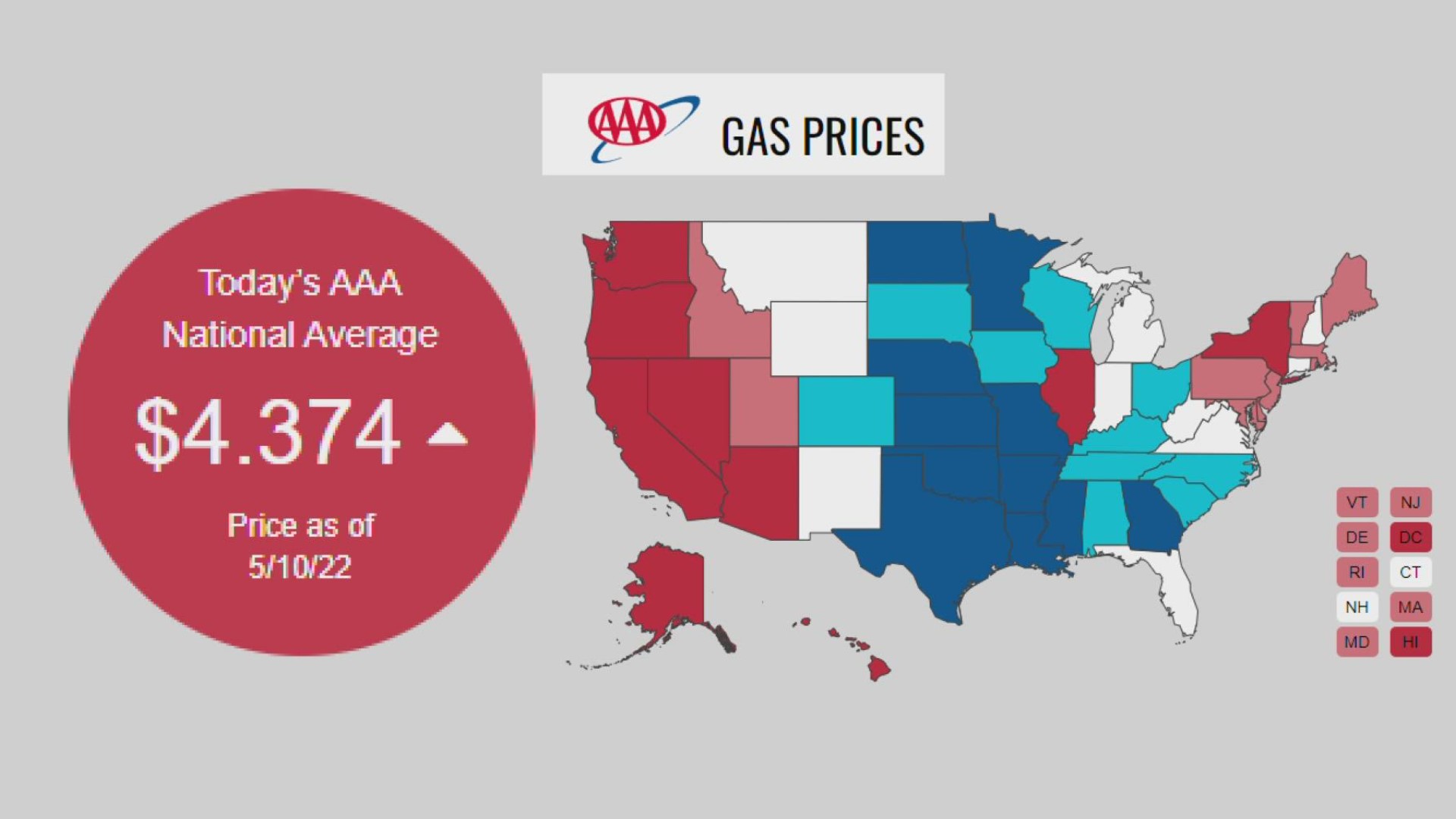Election News
Biden Sell’s Off Emergency Oil Reserves Ahead of Nov 8 Elections
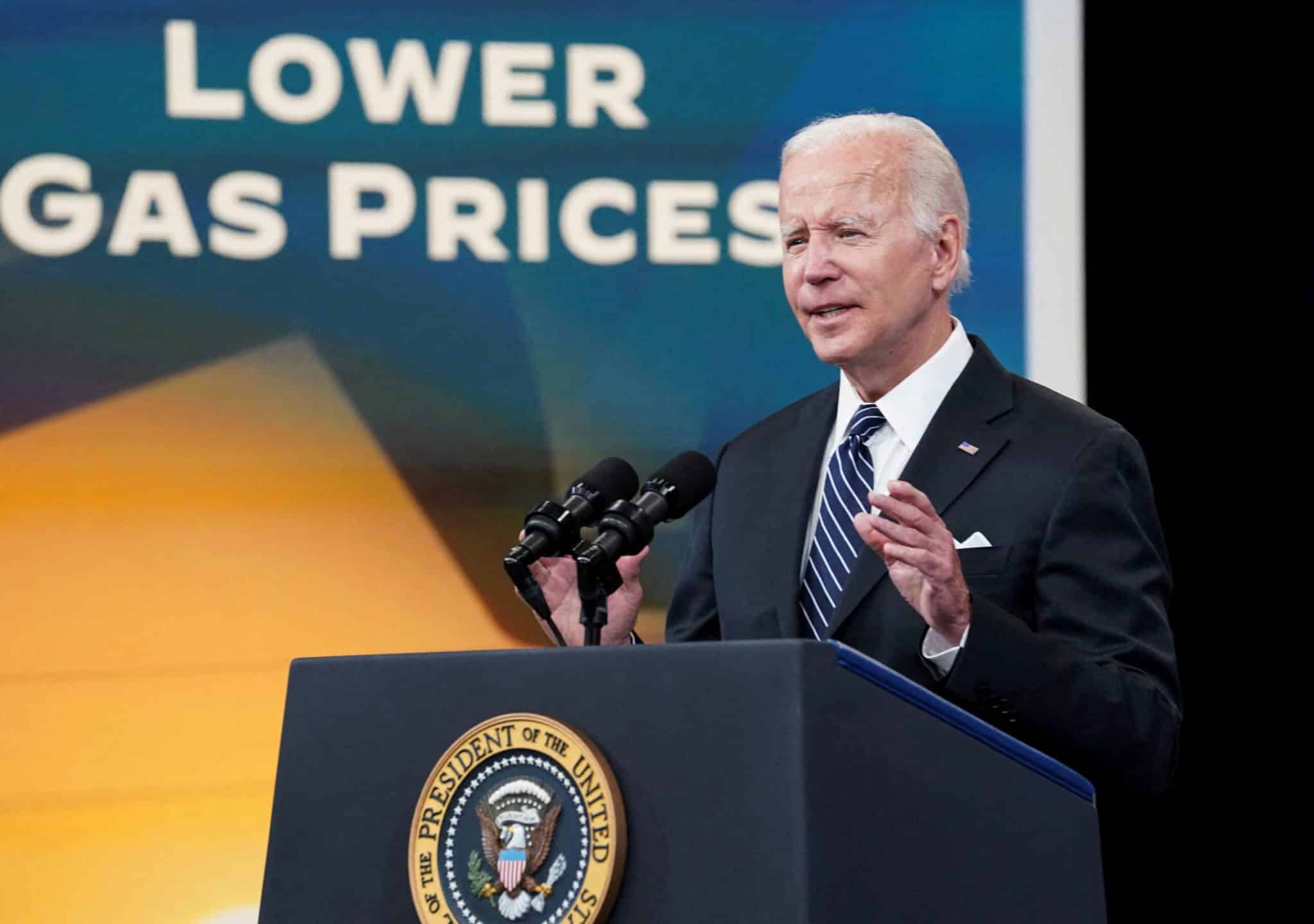
On Wednesday, U.S. President Joe Biden announced a plan to sell off the remainder of his pre-release from the U.S. emergency oil reserve by the end of 2022 and begin replenishing the stockpile to reduce high gasoline prices ahead of the Nov. 8 midterm elections.
Biden’s goal is to increase supply sufficiently to prevent near-term oil price rises that would penalize Americans and reassure U.S. drillers that the U.S. government would enter the oil market as a buyer if prices fall too low.
He said 15 million barrels of oil would be offered from the emergency Oil Reserve as part of a record 180 million barrel release that began in May and that the U.S. is ready to tap supplies again early next year to keep prices under control.
“It’s what we’re calling a prepare and release plan,” Joe Biden said at a White House event. “This enables us to respond rapidly to world events and avert oil price rises.”
Joe Biden’s use of the federal government’s Oil reserves to manage oil price surges and attempts to enhance U.S. output demonstrate how the Ukraine crisis and inflation have altered the policies of a president who campaigned to reduce the country’s reliance on the fossil fuel industry.
The White House felt an increased sense of urgency after the Saudi-led Organization of Petroleum Exporting Countries irritated Biden, sided with Russia and agreed to a production cut, prompting Biden to remark that the US-Saudi relationship has to be revalued.
“With today’s statement, we’re going to continue to stabilize markets and lower prices at a time when other countries’ actions have produced such instability,” Biden said.
Biden blamed rising crude and gasoline costs on Russian President Vladimir Putin’s invasion of Ukraine, adding that prices had plummeted 30% from their peak earlier this year.
He also reminded U.S. energy corporations, gasoline merchants, and refiners to stop using record profits to buy back stock and instead invest in production.
Prices aren’t lowering fast enough, he claims.
“Families are hurting,” he says, and rising gasoline prices strain their finances.
Faced with criticism from Republicans who claim he is using the SPR for political reasons rather than an emergency, the president also stated that the nation’s stockpiles would be replenished in the coming years.
He stated that his goal is to replenish supplies when U.S. crude is about $70 per barrel, a price he believes will allow firms to profit while still being a good value for taxpayers. On Wednesday, the U.S. benchmark was around $85 per barrel.
According to Biden, the SPR, already at its lowest point since 1984, is more than half empty with more than 400 million barrels of oil.
The administration intended to stop selling the 180 million barrels in November. Purchases by businesses such as Marathon Petroleum Corp (MPC.N), Exxon Mobil Corp (XOM.N), and Valero Energy Corp (VLO.N) were, however, slower than expected over the summer, with approximately 15 million barrels remaining unsold.
Presidents in the United States have limited influence over fuel prices, but given the country’s vast gasoline consumption – the largest in the world – high costs at the pump can be political poison. Retail gasoline prices have decreased from a high in June, but they remain higher than historical averages and significantly contribute to inflation.
The disparity between wholesale and retail prices has also risen, prompting the White House to issue cautions against price gouging.
With the new SPR repurchase guarantee, Biden believes oil companies will be more confident in investing in production and stop pushing stock buybacks.
“So, to all businesses, I say, “You’re sitting on record profits, and we’re offering you more confidence.” So you may take action right now to improve oil production, “He stated.
Companies “You should not use your profits to repurchase stock or pay dividends. Not now, not while there is a war raging, “He asked them to lower the prices they charge at the pump.
In recent weeks, the oil sector has grown increasingly apprehensive that the administration may take the dramatic step of prohibiting or limiting gasoline or diesel exports to replenish dwindling U.S. supplies.
They have urged the government to withdraw the option, which officials are unwilling to do.
Biden is to Blame for High Gas Prices
When President Biden began office, a gallon of normal gas cost an average of $2.38. It now costs $3.92.
Mr. Biden has attempted to blame Russian President Vladimir Putin and his invasion of Ukraine for the rising cost, referring to it as “Putin’s price hike, and now he’s blaming Saudi Arabia.
” However, gasoline had already reached $3.53 per gallon when the red megalomaniac invaded. As a result, Mr. Putin was not to blame.
The president has taken numerous attempts to reduce the price but to no avail. He released millions of barrels from the Strategic Petroleum Reserve (SPR), but practically every analyst believes this is only a temporary solution.
By the end of March, a gallon of gas cost $4.23, so he drew on the vast emergency reserve, allowing the discharge of 125 million barrels of oil. However, the United States consumes approximately 20 million barrels of oil daily, so Mr. Biden’s release was brief.
Prices levelled off for roughly five weeks, hovering just above $4. Then it all started over: $4.62 at the end of May and even $5.00 by mid-June.
However, economists argue that the SPR release is not the cause of declining prices. Prices had risen so far that many had just stopped buying.
Prices began to rise again after 99 days of decline. Reporters questioned White House press secretary Karine Jean-Pierre about it all last Tuesday.
“You stated that the president was to blame for the drop in gas prices. “Is the president to blame for rising petrol prices?” a reporter inquired.
“It’s far more sophisticated than that,” Ms. Jean-Pierre explained. “You are aware of this. There have been global challenges to which we have all responded. When I say ‘all,’ I mean that other countries have had to deal with it since the pandemic.
There was the pandemic, and then there was Putin’s war. In addition, Putin’s war has raised petrol costs at the pump. “We’ve seen that over the last few months,” she remarked.
As prices began to climb again, Mr. Biden began to blame oil firms, despite taking credit for reducing costs.
According to the letter acquired by The Wall Street Journal from Energy Secretary Jennifer Granholm to seven major refiners, the Biden administration has gone so far as to advise them to limit fuel exports.
“Given the historic level of U.S. refined product exports,” Ms. Granholm said in an August letter to seven U.S. refiners, “I again advise you to focus in the near term on growing inventories in the United States rather than selling down present stockpiles and boosting exports.”
However, the refiners retaliated. “Banning or restricting the export of refined products would certainly lower inventory levels, reduce domestic refining capacity, raise consumer fuel costs, and alienate U.S. friends during a time of conflict,” business leaders said in response to Ms. Granholm.
Mr. Biden also halted much of the oil production growth in the United States.
“Recall that the United States imported 10.1 million barrels per day (BPD) of crude oil in 2005, with OPEC accounting for 4.8 million BPD (48%) of that total. The SPR held 685 million barrels. With the United States buying 10.1 million BPD of crude oil at the time, there was enough oil to last 68 days,” Forbes noted.
Mr. Biden even went to Saudi Arabia to ask for more oil (remember the fist bump with Crown Prince Mohammed bin Salman?). He almost went empty-handed, save for a vague agreement in which Saudi Arabia stated that it would “help global oil market balancing for continued economic growth” but never specified how much petroleum would be delivered.
Mr. Biden stated that he was not there for oil but that he and the prince “privately agreed that oil-producing states would agree to increase output at an Aug. 3 summit,” according to The New York Times.
While the Organization of Petroleum Exporting Countries (OPEC) declared an increase in output in August — 100,000 barrels per day — it didn’t last long. OPEC stated this month that it would cut oil production by two million barrels a day due to a glut in the global crude oil market.
In the end, Mr. Biden deserves none of the credit — and all of the blame — for rising gas costs.
Source: VOR News, Reuters
Election News
Kamala Harris Polls Better Than Joe Biden with Voters of Color and Young People

Kamala Harris appears to be more appealing to voters of colour and younger voters than Joe Biden was before dropping out of the presidential run. Harris has the potential to acquire greater support from these groups in her upcoming election against Donald Trump, as seen by 2020 outcomes.
Check out our freshly published CNN/SSRS poll. Harris has a 78% to 15% edge over Trump among black voters. In CNN polling data from April and June, Biden led by a narrower 70% to 23% among these same voters (the poll interviewed the same respondents again).
This is also true for Hispanic voters, albeit to a lesser extent. Harris has 47% to Trump’s 45%, compared to 50% for Trump and 41% for Biden among the same respondents in April and June.
Voters under the age of 35 show a similar shift. Kamala Harris currently has 47% to Trump’s 43%. In April and June, these same voters supported Trump 49% to 42% over Biden.
In some ways, none of these changes are very shocking. Biden had performed the lowest for a Democrat this century among all of these normally Democratic-leaning populations. In fact, his showing among Hispanic and Black voters was the lowest by a Democrat in more than 50 years.
Kamala Harris probably had no choice but to align with these voting blocs.
Despite the improvement, Harris’ results should leave a lot to be desired. In the final 2020 surveys, she scored at least 5 points lower than Biden among the same groups.
By the end of the 2020 campaign, Biden had an 84% to 9% lead over Trump among Black voters. Even more noteworthy is Biden’s 58%-32% lead among Hispanic voters.
Finally, even though Harris has become a meme favourite with young voters, Biden’s 60% to 31% lead over Trump by the end of the 2020 campaign is significantly larger than Harris’ current position.
(It’s worth noting that polling at this time in the 2020 campaign was similar to polling in the end.)
This may appear to be bad news for the Harris campaign, and it certainly is. Harris is unlikely to defeat the former president unless his performance in these areas improves.
The good news for Kamala Harris is that she’s gaining progress with this group in comparison to Biden’s performance earlier this year.
As Harris continues to establish herself outside of her role as Biden’s vice president, there is a good chance she will build out her own political identity, which may appeal to voters of colour and young people.
The fact that Harris outperforms Biden among voters of colour gives her the ability to open up more avenues in the Electoral College.
Biden’s route to 270 electoral votes seems restricted. He would need to dominate the northern battleground states of Michigan, Pennsylvania, Wisconsin, and Nebraska’s 2nd Congressional District. His polling numbers in the Sun Belt states of Arizona, Georgia, Nevada, and North Carolina were low.
If Biden had won the northern battleground states and the other Democratic-leaning states (excluding the aforementioned Sun Belt states), he would have received the 270 electoral votes required to win.
Biden underperformed in Sun Belt states because of their high proportion of Black and Hispanic voters. Kamala Harris may be able to reopen the door to new electoral paths if he performs better with those demographics.
If Kamala Harris wins all four Sun Belt battlegrounds indicated above, she will not need to carry Michigan, Pennsylvania, or Wisconsin.
Perhaps more plausible, Kamala Harris may reach 270 electoral votes by winning a combination of northern battlegrounds and Sun Belt swing states.
The bottom line is that the latest CNN poll gives the Kamala Harris campaign some hope. It’s not that Trump isn’t popular, or that Harris won’t have a difficult campaign.
Rather, Kamala Harris now has a number of avenues to success, whereas Biden’s options appeared to be narrowing rapidly.
Source: CNN
Election News
As Harris Moves To Secure The Democratic Nomination, Misinformation Follows Soon After Online

Within minutes of President Joe Biden endorsing Vice President Kamala Harris to succeed him on the Democratic Party’s ticket on Sunday, the internet erupted with lies, distorted photographs, and other false allegations about Harris.
Some fans of former President Donald Trump, the Republican contender for the November election, even claimed Biden was the victim of a coup.
Meanwhile, a flurry of slickly crafted pro-Harris videos soon spread on social media as her supporters attempted to capitalize on the situation.
The venom and counter-punches are a likely preview of the remaining three months of the presidential race when a fierce battle to mold and destroy Harris’ image will take place at a time when social media companies have reduced disinformation controls.
“As Kamala Harris becomes more likely to be the Democratic Party’s presumptive presidential nominee and gains more public attention, the amount of disinformation and misleading rhetoric will increase exponentially,” Erik Nisbet, a professor at Northwestern University’s School of Communication, told CNN.

Harris | CNN
As Harris Moves To Secure The Democratic Nomination, Misinformation Follows Soon After Online
On X, owner Elon Musk fueled an antisemitic conspiracy theory by responding to a photo of Harris with Alexander Soros, son of billionaire megadonor George Soros, by implying that Harris was a “puppet” of the family. Musk embraced Trump this month, sharing pro-Trump content with almost 190 million followers.
Photoshopped photographs of Harris have also surfaced. One photo of Harris smiling with her husband was altered to make it appear like the vice president was posing with Jeffrey Epstein, the deceased financier and accused sex trafficker.
In the hours following Biden’s revelation, the hashtag “She’s Indian” trended on X, with some users spreading a false rumor about Harris being “not Black” (Harris’ mother was born in India and her father in Jamaica).
PeakMetrics, a social media analytics firm, examined approximately 175,000 posts on X between 6 and 7 p.m. ET on Sunday that addressed Harris about Biden’s statement and discovered that 8.3% of the postings used “racialized” language, while 4.5% used “sexualized” language.
Biden’s likeness was also utilized following his announcement, which was made via a social media post rather than a broadcast address. A bogus, expletive-laden video purporting to show Biden announcing his decision to withdraw from the race began circulating on X.
PBS News, whose logo appeared in the video, issued a statement labeling it a ” deep fake,” adding, “PBS News did not authorize the use of this video, and we do not condone altering news video or audio in any way that could mislead the audience.”
Pro-Harris videos flooded TikTok, with many citing a coconut joke that has become synonymous with support for her candidacy. (In 2023, Harris delivered a speech on expanding chances for Hispanic Americans that featured a statement attributed to her mother on understanding the context of young people’s lives: “You think you just fell out of a coconut tree?”) One TikTok video, a compilation of Harris memes, had almost 712,000 likes and 73,000 shares.
Harris’ crew has also embraced a popular post by British pop singer Charli XCX, who referred to Harris as a “brat,” a phrase encompassing women’s and LGBTQ+ empowerment.
As Harris Moves To Secure The Democratic Nomination, Misinformation Follows Soon After Online
Russian official media also quickly responded to Biden’s decision to withdraw. Sputnik, one of several pro-Kremlin mouthpieces, wrongly claimed in a tweet that Ukrainian President Volodymyr Zelensky had been a “curse” to Biden.
“I don’t think Kremlin-aligned accounts will drive conversations related to this news,” said Joseph Bodnar, a researcher who studies pro-Kremlin media for CNN. “But they’re certainly happy to boost divisive domestic narratives.”
“Imagine being a foreign disinfo/information operations actor trying to compete with the actual news this election cycle,” joked Shane Huntley, a cyber threat intelligence expert at Google, on X.
SOURCE | CNN
Politics
US President Joe Biden Dismisses Calls for Cognitive Test

In a television interview on Friday, US President Joe Biden deflected queries on his mental health in an attempt to put a stop to demands that he withdraw his reelection campaign after his dismal debate performance with former President Donald J. Trump.
Sensations of discontent among certain Democratic voters, lawmakers, and fundraisers were growing, and the one-on-one meeting with the ABC network was billed as the most important of the 81-year-old president’s lengthy career.
However, the 22-minute sit-down with ABC’s George Stephanopoulos seemed to offer little comfort as Biden continued to downplay polls and party concerns that the debate had seriously harmed his chances while blaming illness for his poor performance.
“I was feeling sick and miserable. The president stated, “I just had a really bad cold,” in his first lengthy, unscripted statement since his confrontation with Republican challenger Donald Trump last week.
The purpose of the interview was to help Biden weather the storm, but his rough voice and rambling responses immediately prompted criticism from Democrats for coming across as “out of touch.”
“I don’t think anybody’s more qualified to be president or win this race than me,” Biden responded when asked if continuing in the race would endanger Democrats’ chances of winning the presidency.
Biden was Defiant
He declined requests for a mental health evaluation, claiming that his daily tasks as president need him to take a cognitive test. I have to pass that test every day for all I do.
As the program aired, the Trump campaign jokingly stated on social media that “Biden sounds great” before declaring that the president “is in denial and in decline.”
The interview followed Biden’s sluggish and frequently nonsensical performance in the Atlanta debate against Trump, which sent shockwaves through his party and prompted demands for him to withdraw from the contest.
The Biden team has strongly refuted any notion that he could pull out and, in the final hours before the ABC interview, unveiled a rigorous campaign itinerary for the remainder of July.
The president made a strong declaration during an animated stump speech at a Madison, Wisconsin, campaign rally: “I’m staying in the race.” Donald Trump will lose to me.
Following the debate, surveys have showed a growing margin in favor of Trump, and a number of Democratic-leaning political pundits, major newspapers, and at least four members of Congress have called for Biden to resign.
Democrats turning on Biden
US media reported that House Minority Leader Hakeem Jeffries and Senate Intelligence Committee Chairman Mark Warner were arranging crisis discussions with members in the coming days.
Throughout Friday’s interview, ABC interviewer George Stephanopoulos brought up the rising Democratic demand for a discussion on selecting a new candidate and questioned Biden about his willingness to resign if he became certain he couldn’t defeat Trump.
“Well, that depends. He responded, “I might do that if the Lord Almighty comes down and tells me that.”
After the fact, Biden clarified that he had not seen the debate, saying, “I don’t think I did, no.”
He also rejected the notion that his subpar performance was an indication of a more significant medical issue.
“It was a bad episode with no signs of a major illness.” I was worn out. In terms of getting ready, I disregarded my gut feelings, and I had a terrible night,” Biden remarked.
Top White House assistant to Barack Obama, David Axelrod, who has occasionally caused trouble for the Biden administration, claimed that the interview revealed a president who is “dangerously out of touch” and expressed doubts about his suitability for office.
He led Trump by ten points at this moment four years ago (in polls). He is now six points behind, according to Axelrod’s post on X.
According to the White House, Biden will travel to Pennsylvania this weekend and then deliver a press conference during the NATO summit in Washington the following week.
-
World2 weeks ago
Former President Trump Survives Being Shot at Pennsylvania Rally
-
Tech4 weeks ago
Huawei Launches 5G-A Pioneers Program at MWC Shanghai 2024: Paving the Way for a Connected Future
-
Sports4 weeks ago
NBA Draft: Kyle Filipowski Withdraws Unexpectedly From The First Round
-
Tech4 weeks ago
ChatGPT Answers Undiscovered Questions and Outperforms Students.
-
News4 weeks ago
US Supreme Court Rejects Drug Deal that Protects the Sackler Family
-
Health4 weeks ago
US Health Agency Issues Dengue Virus Infection Warning

